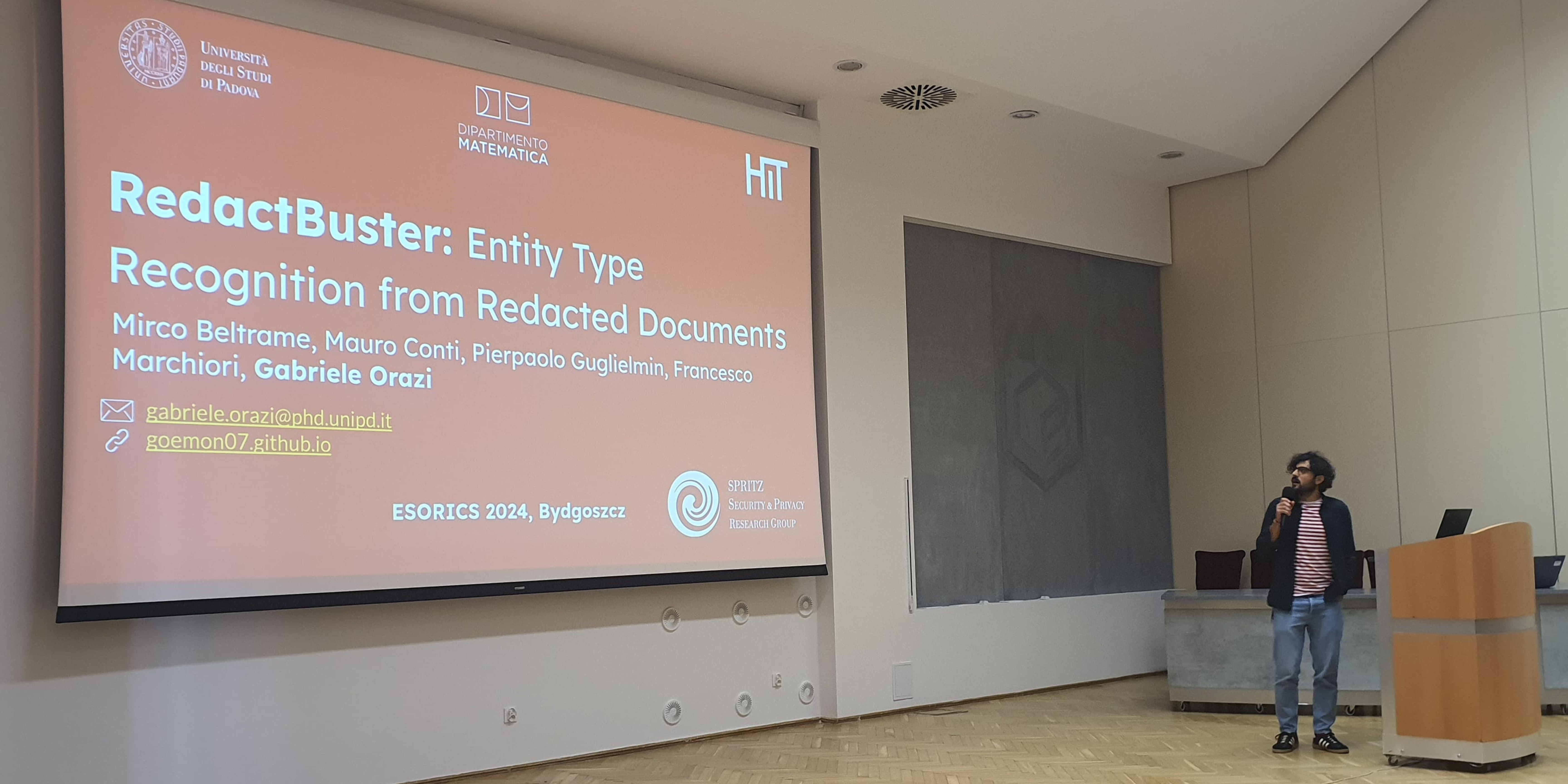NGI Enrichers Fellow Gabriele Orazi Achieves Two Major Cybersecurity Publications During His Fellowship at UC Irvine
Gabriele Orazi, a researcher from the University of Padua and recent PhD graduate in Brain, Mind, and Computer Science, has achieved significant academic milestones during his NGI Enrichers fellowship. Focusing on privacy and obfuscation, Gabriele joined the SPROUT research group at the University of California, Irvine (UCI), where he developed two impactful projects—both now published in open-access venues and presented at academic conferences.
📄 RedactBuster: Inferring Entity Types from Redacted Documents
The primary focus of Gabriele’s fellowship was a project titled RedactBuster, aimed at exposing information leakage in documents containing anonymized sensitive data. With the collaboration of the SPROUT team, Gabriele refined the concept into a concrete attack model.
The project shows that redacted sections can be reverse-engineered by analyzing the contextual information in the remaining text. The model can infer the entity type (e.g., name, date, location, organization) of each redacted portion—revealing critical privacy concerns for anyone handling redacted documents.
🎧 Acoustic Side-Channel Attacks on a Computer Mouse
In addition to RedactBuster, Gabriele contributed to a novel side-channel project examining unintended acoustic emissions from a computer mouse.
With guidance from Prof. Gene Tsudik, the study found that simply recording the sound produced as a mouse moves across a surface can allow reconstruction of the user’s pointer movements.
This work extends the field of side-channel attacks to a lesser-studied human interface device and suggests that attackers could eventually combine acoustic data from multiple input sources (like keyboards and mice) to fully reconstruct user actions.
🌍 Fellowship Impact
The NGI Enrichers fellowship was instrumental in enabling these achievements. The opportunity to collaborate with experts in applied cryptography, a field distinct from Gabriele’s original research background, led to cross-disciplinary innovation and enriched both projects.
By approaching cybersecurity from the attacker’s perspective, both studies provide valuable insights into emerging threats and underscore the need for proactive countermeasures. The fellowship also exposed Gabriele to the differences in European and American research approaches, broadening his academic and professional outlook.

